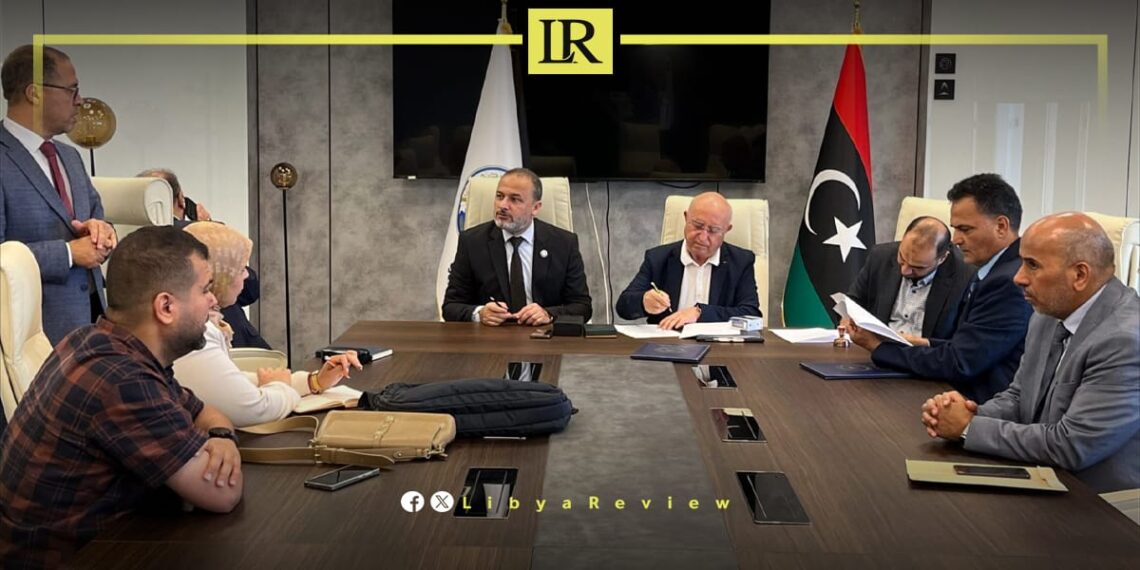The University of Benghazi has signed a memorandum of understanding (MoU) with three institutions to support and develop Umm Al-Rizam General Hospital, in a move aimed at boosting healthcare services in eastern Libya.
The agreement was signed in the presence of University President Professor Azeldin Al-Darsi, alongside representatives from the Libyan Ministry of Health, and attended by officials from the university’s Office of International Cooperation, the Vice Presidents for Community Service and Medical Sciences, and the Dean of the Faculty of Medicine.
The MoU brings together the University of Benghazi, the International Cloud Foundation for Humanitarian Relief, Health, and Education, Istanbul Aydın University in Turkey, and Umm Al-Rizam General Hospital.
The partnership aims to develop one of the hospital’s key facilities and enhance medical services through targeted training programmes for healthcare staff across various medical specialisations. The agreement also promotes scientific and academic cooperation with the Turkish university.
This initiative is part of the University of Benghazi’s broader efforts to support the healthcare sector in Libya by building effective partnerships with local and international institutions, and aligning medical services with global standards.
Libya has been in chaos since a NATO-backed uprising toppled longtime leader Muammar Gaddafi in 2011. The county has for years been split between rival administrations.
Libya’s economy, heavily reliant on oil, has suffered due to the ongoing conflict. The instability has led to fluctuations in oil production and prices, impacting the global oil market and Libya’s economy.
The conflict has led to a significant humanitarian crisis in Libya, with thousands of people killed, and many more displaced. Migrants and refugees using Libya as a transit point to Europe have also faced dire conditions.
The planned elections for December 2021 were delayed due to disagreements over election laws and the eligibility of certain candidates. This delay has raised concerns about the feasibility of a peaceful political transition.
Despite the ceasefire, security remains a significant concern with sporadic fighting and the presence of mercenaries and foreign fighters. The unification of the military and the removal of foreign forces are crucial challenges.


